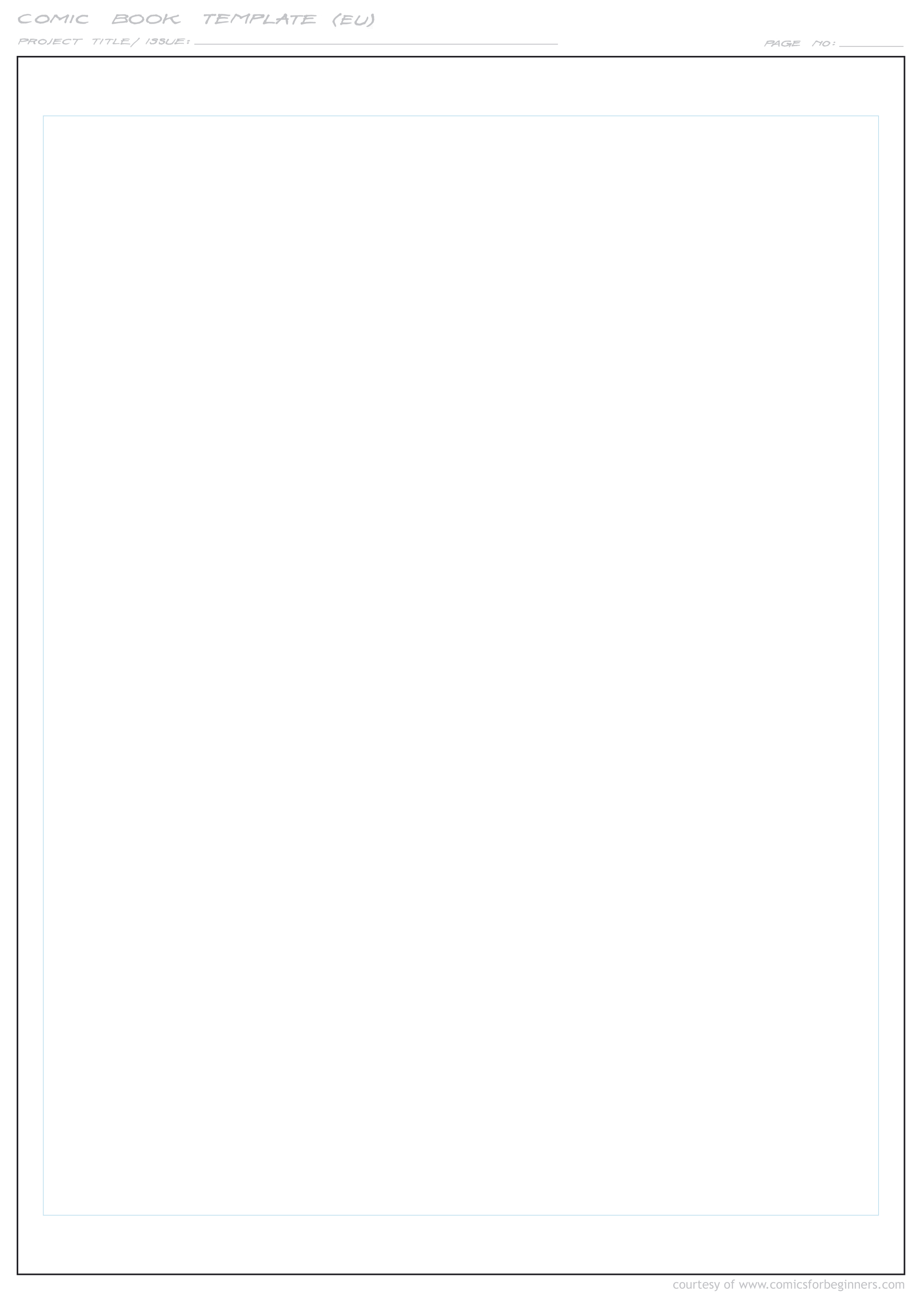
For your convenience, I’ve put the comics templates up in two formats: Letter and A4. Choose whatever your printer prefers!
Unsure of the standard format for making comic book pages? Tired of measuring out borders and bleeds? With these comics templates, you no longer have to! Just right click and save to your computer, open in Photoshop, Manga Studios or Illustrator – or just print out and start drawing!
Check out the .jpg examples here. Below you can find the high quality .pdf files.

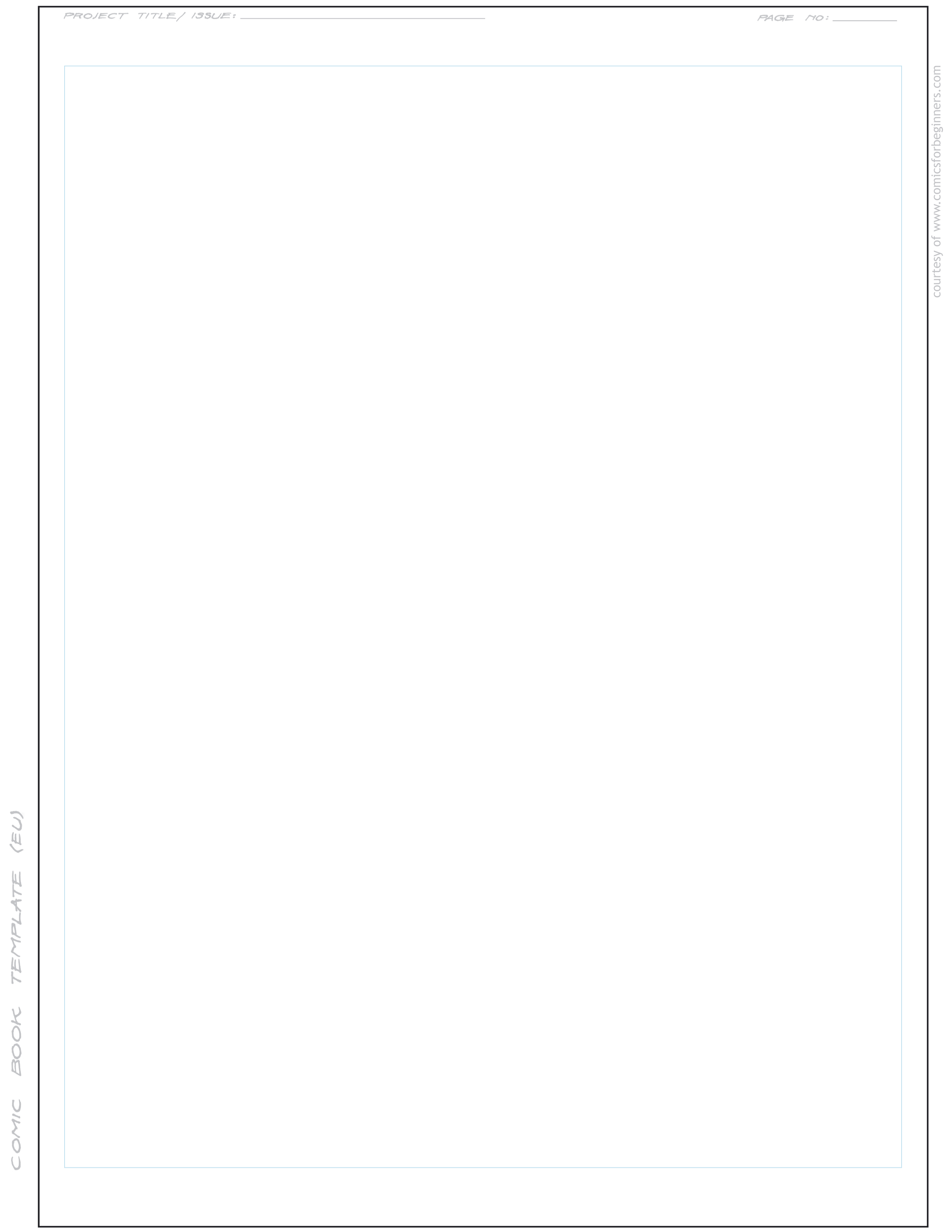
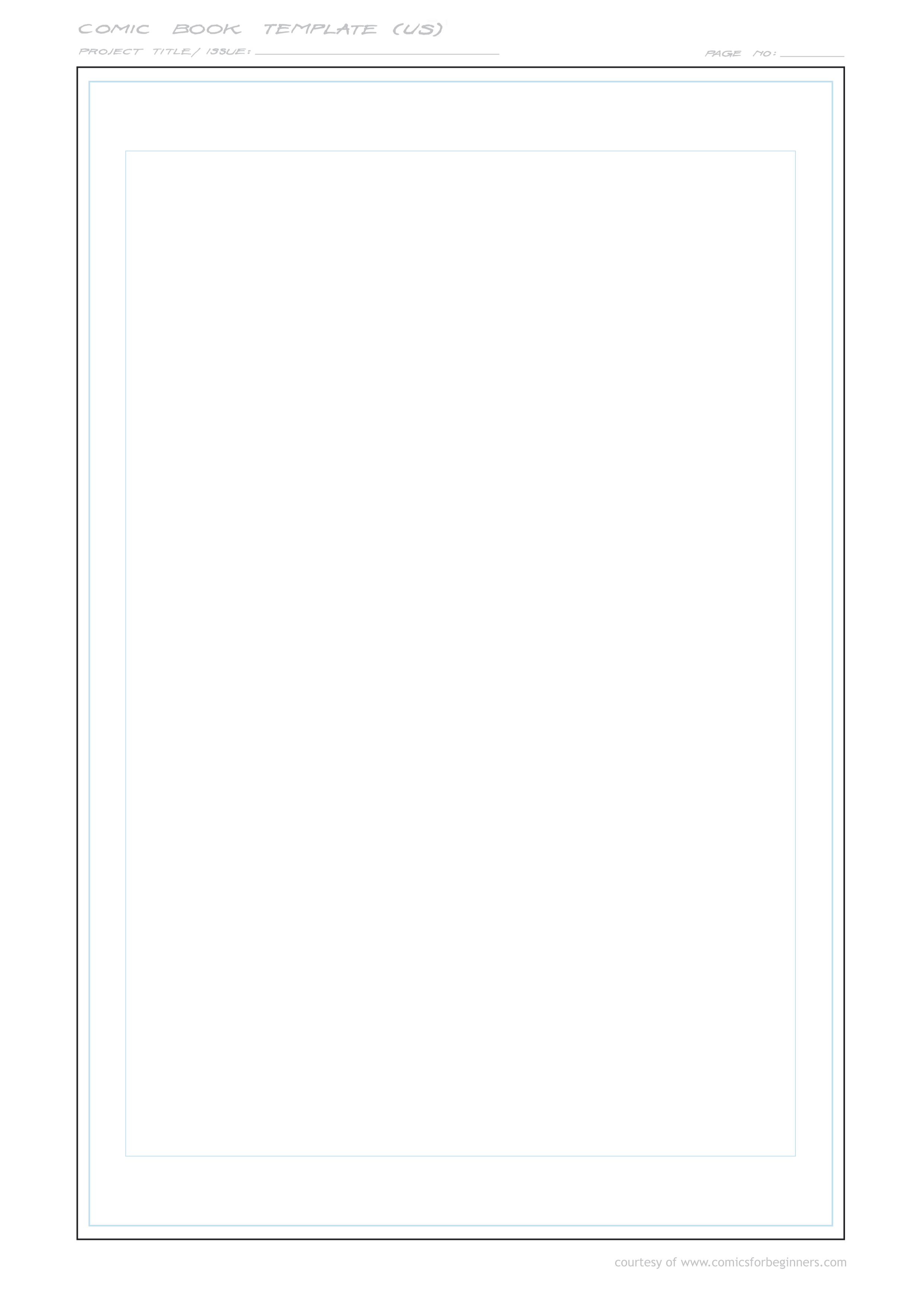
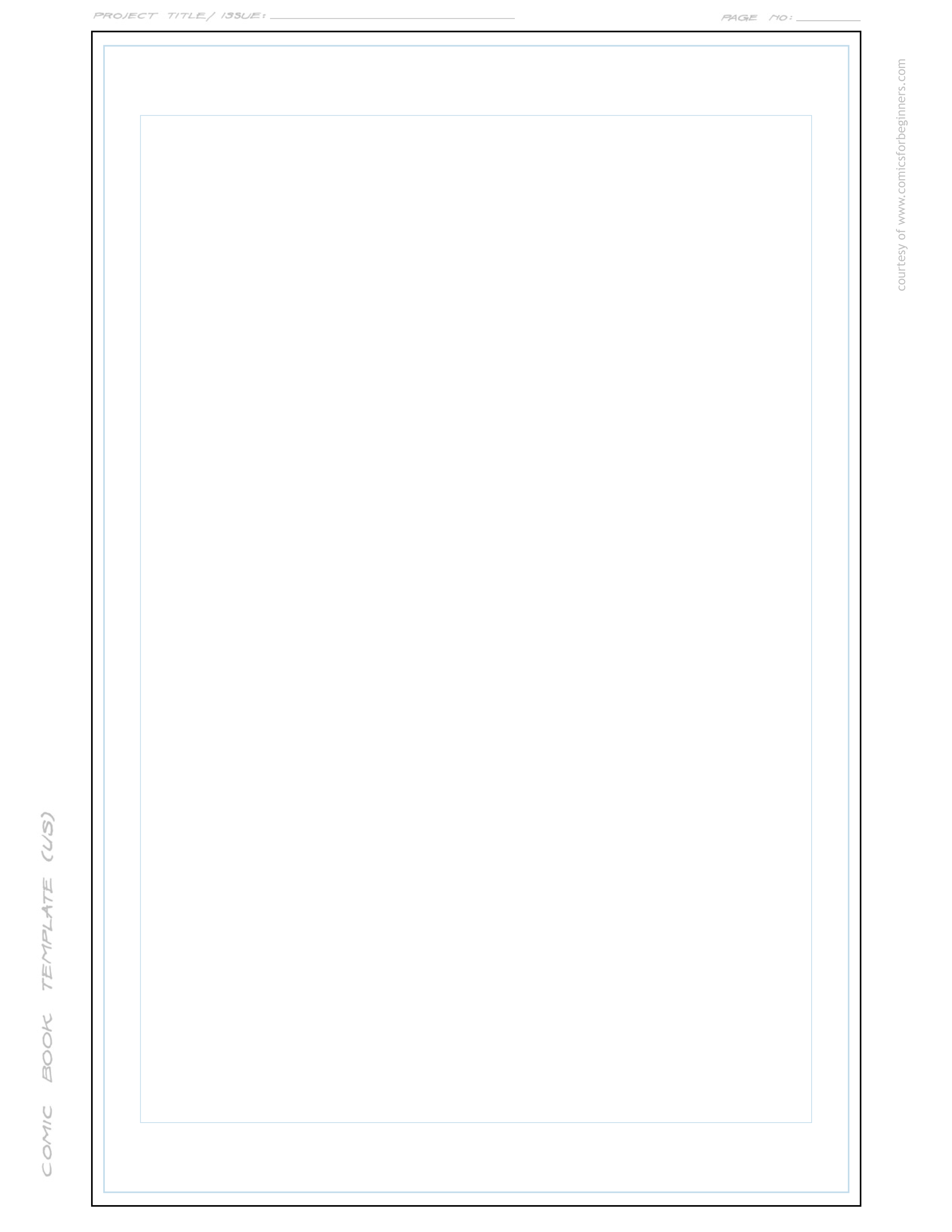
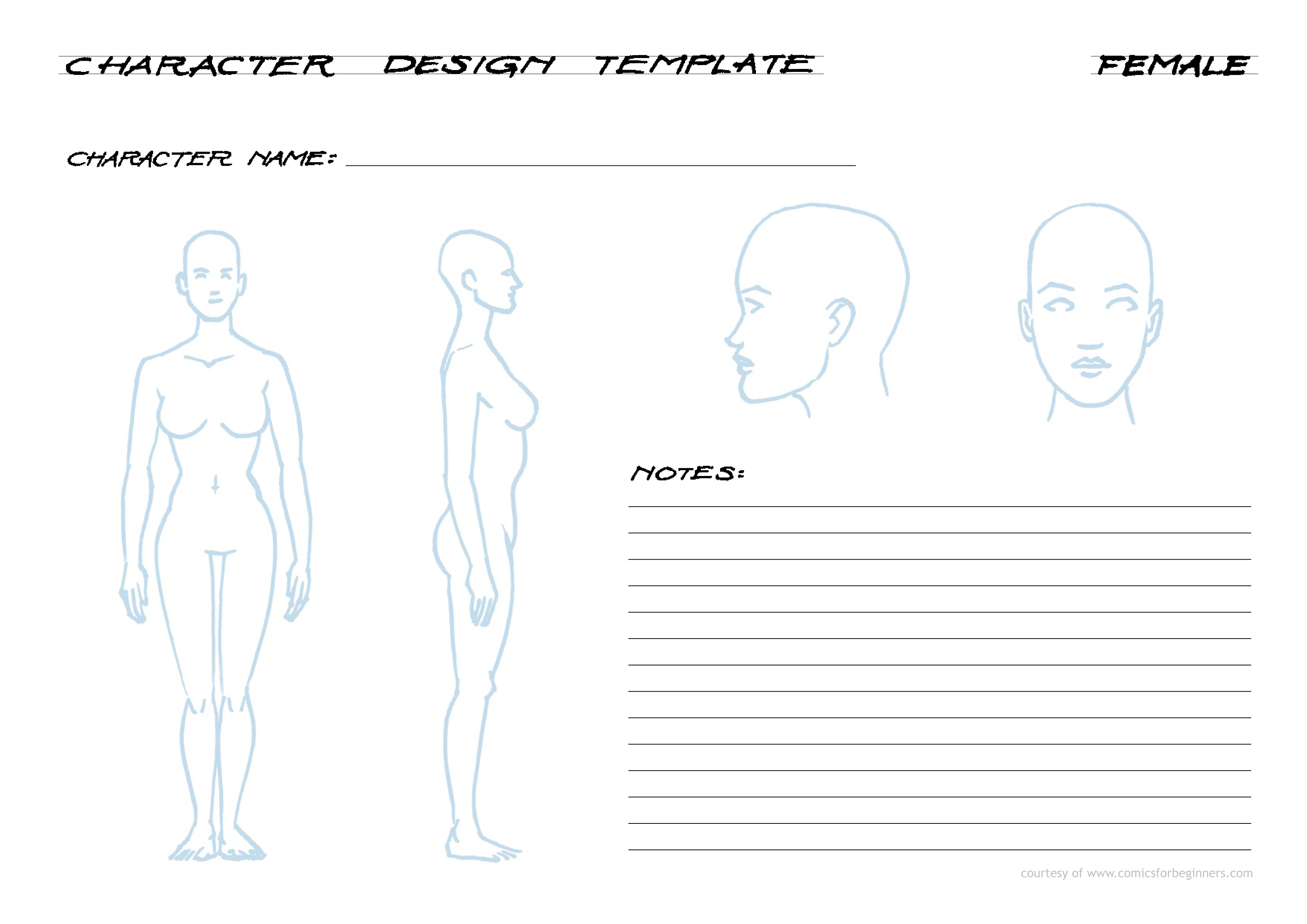
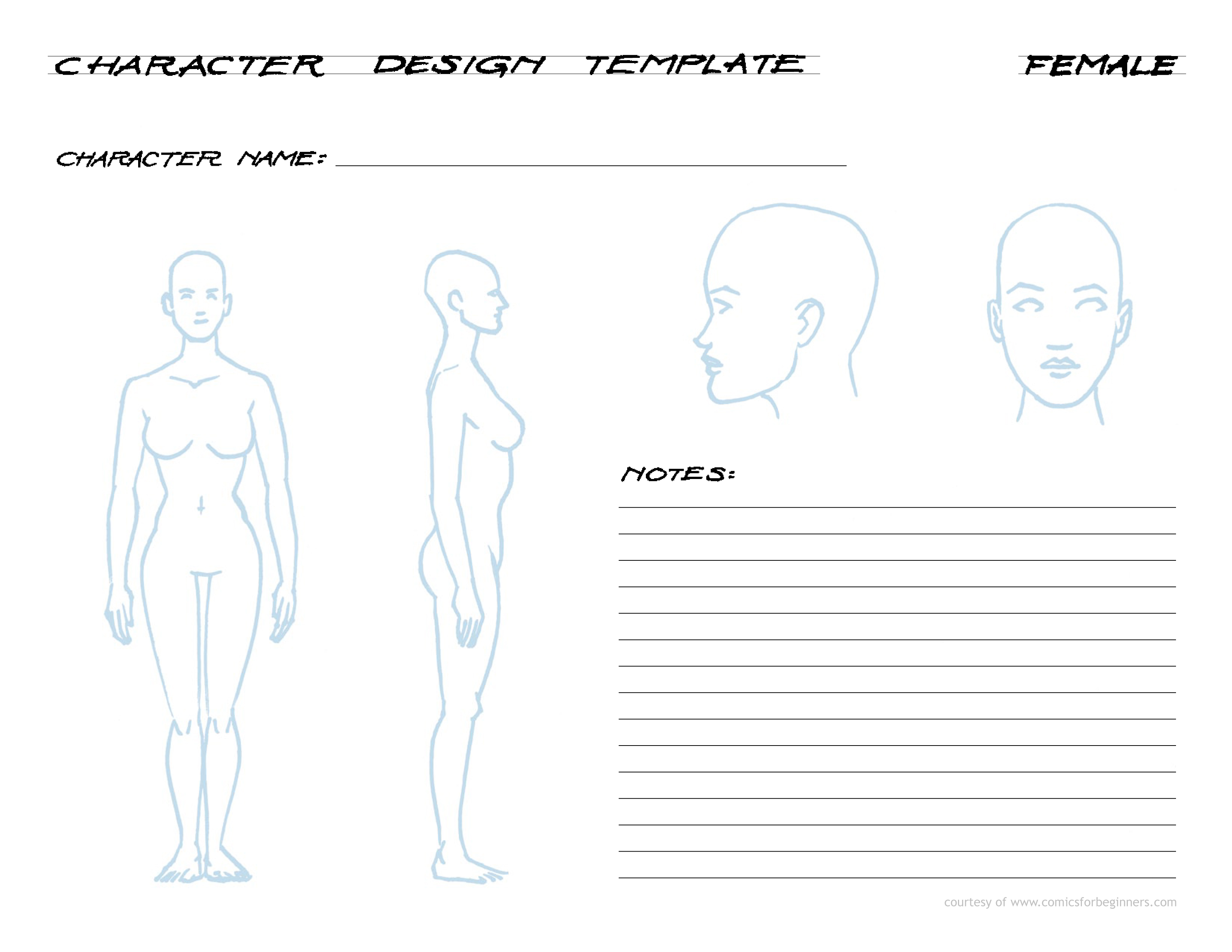
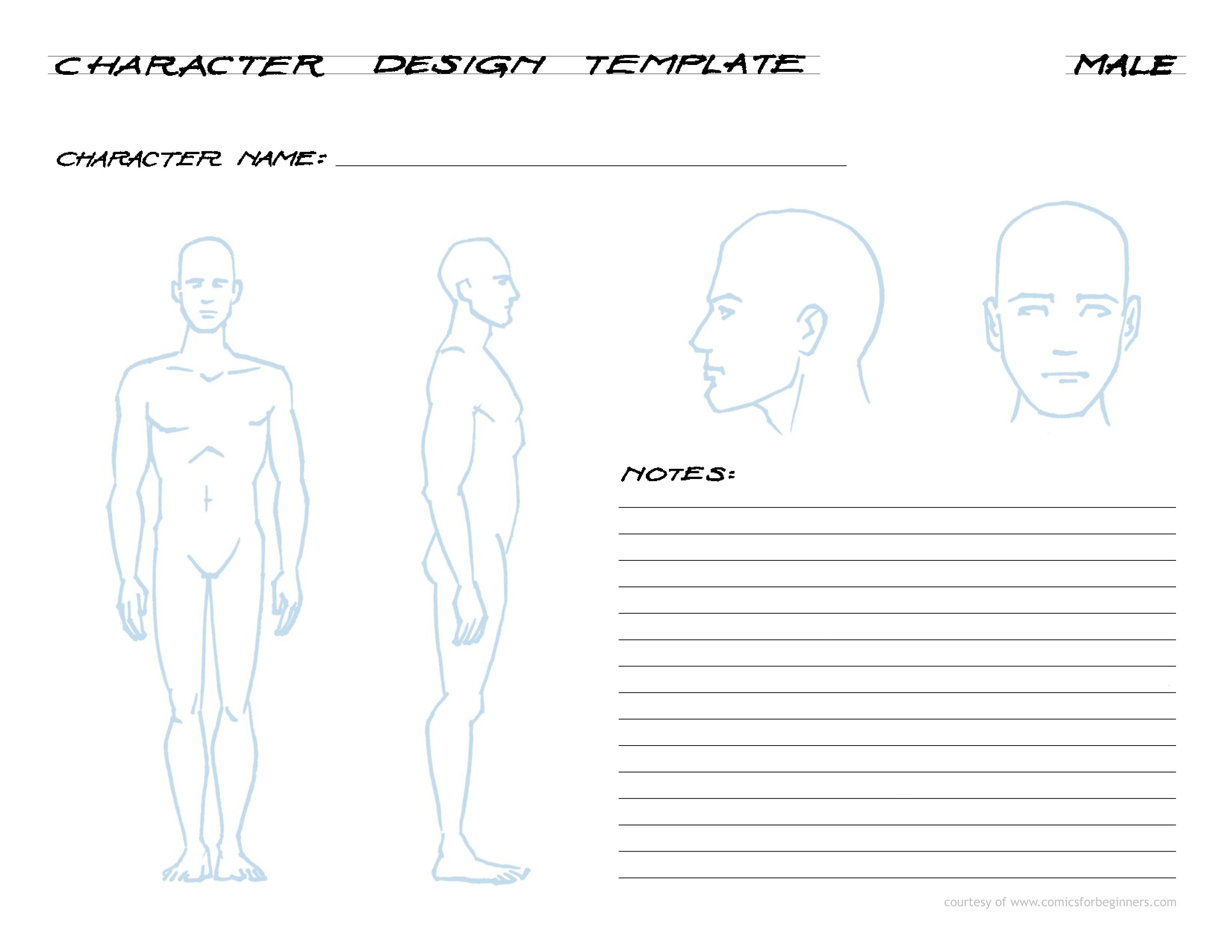

Below are PDF templates for both the US comics format and European graphic novel format. Take your pick!
A helpful tool when designing your comic book characters, is a style guide or design template.
I”ve put up a male and a female version, making it quick and easy for your to concentrate on the design rather than anatomy. Please note that people are not ALL the same size, so you may have to vary a bit in your rendering of the characters in your book.
Use the templates as a quick guide to design clothes, hairstyle etc. These templates are also available in both letter format and A4 format.
These are all personal recommendations!
Photoshop is a must, if you want to color your comics digitally. Monthly payment plan at adobe.com makes sure you always have the latest version.
Invaluable for drawing or coloring on your computer.
A nice, sturdy pencil with a good grip. The 0,7 lead tends to break less often than the more widely spread 0,5 version and makes for more versatile lines.
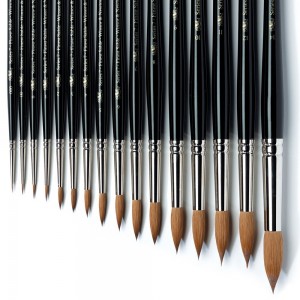
A nice all-round brush that stays in shape if you take care of it.
Canson is a good brand, their watercolor paper is good value for money too.
Water-resistant and smear-proof, these markers are a great all-round tool. Especially great for drawing on weather maps!
If you want another kind of marker with a little variation to it, this is a good choice.
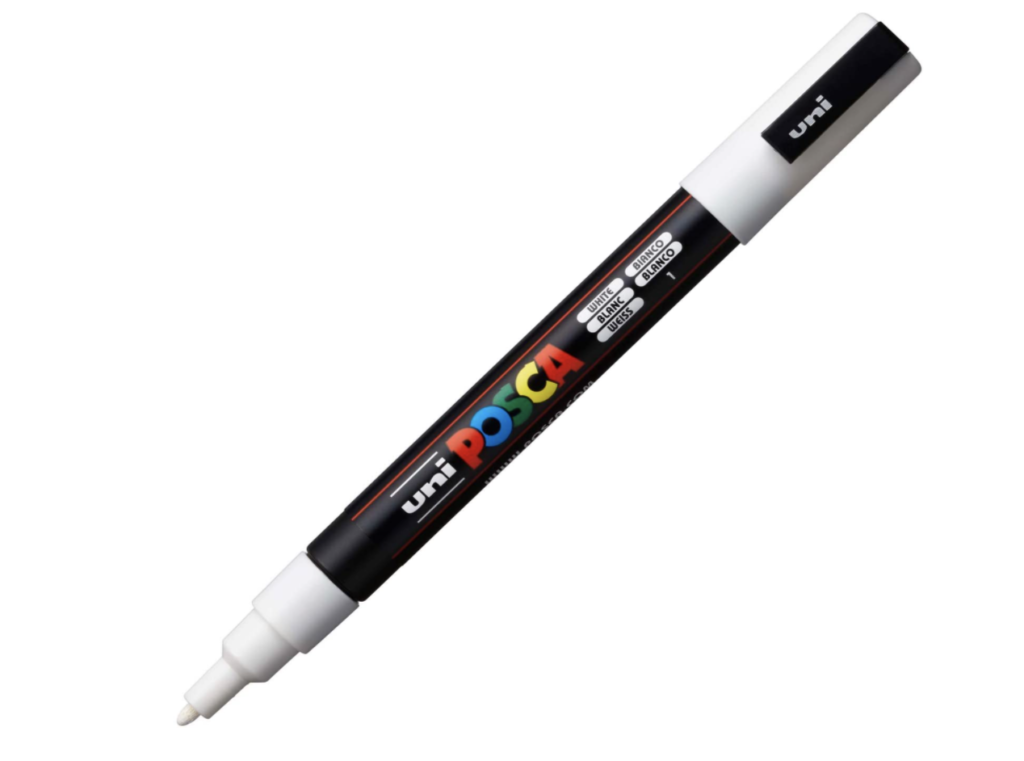
Excellent for small, quick corrections. Dries fast and covers most inks.
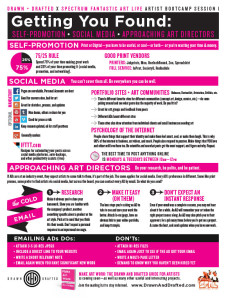
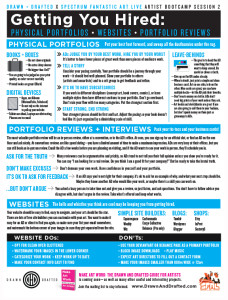
You can learn more about the book here and sign up to the newsletter at http://www.drawnanddrafted.com/ and stay in the loop about their upcoming Kickstarter campaign for the book.
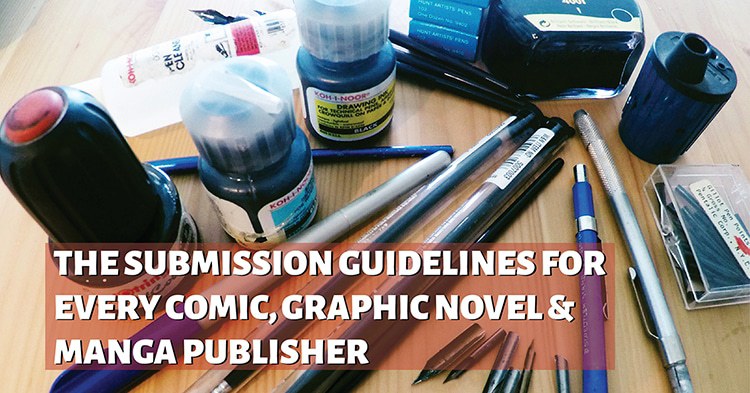
Jason Thibault has collected a list of submission guidelines for a lot of US manga and comics publishers. Check it out here.
A classic, if somewhat dated.
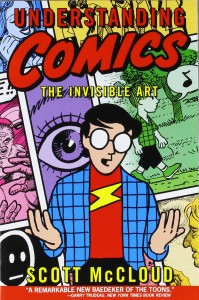
Another classic. Very academic and not very practical, but great for inspiration.
Somewhat more accesible than “Understanding Comics” but still very high brow and very thorough.
A very visual tome with examples of comics storytelling and graphic design from a variety of artists.
A guide to the US comics industry with tips and insights from pros.
An excellent insight to how different artists approach a script, their thought process and workflow.
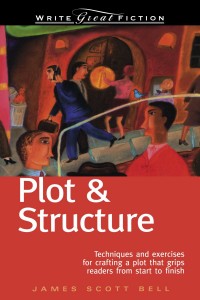
A simple, understandable book about story structure for any medium.
An excellent resource for framing shots and visual storytelling, easily applied to comics.
Stephen King’s classic book is half memoir, half hands-on writing tips. An excellent read and very inspirational.

My own book on making a living as a creative freelancer – Available in Kindle , paperback and audiobook format.
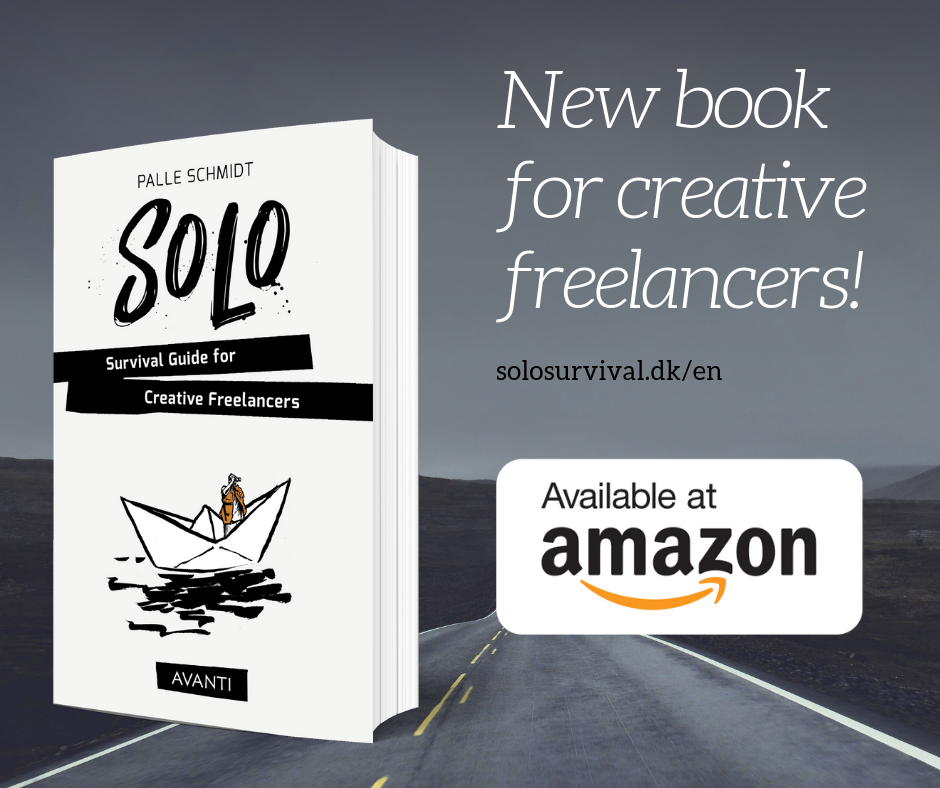
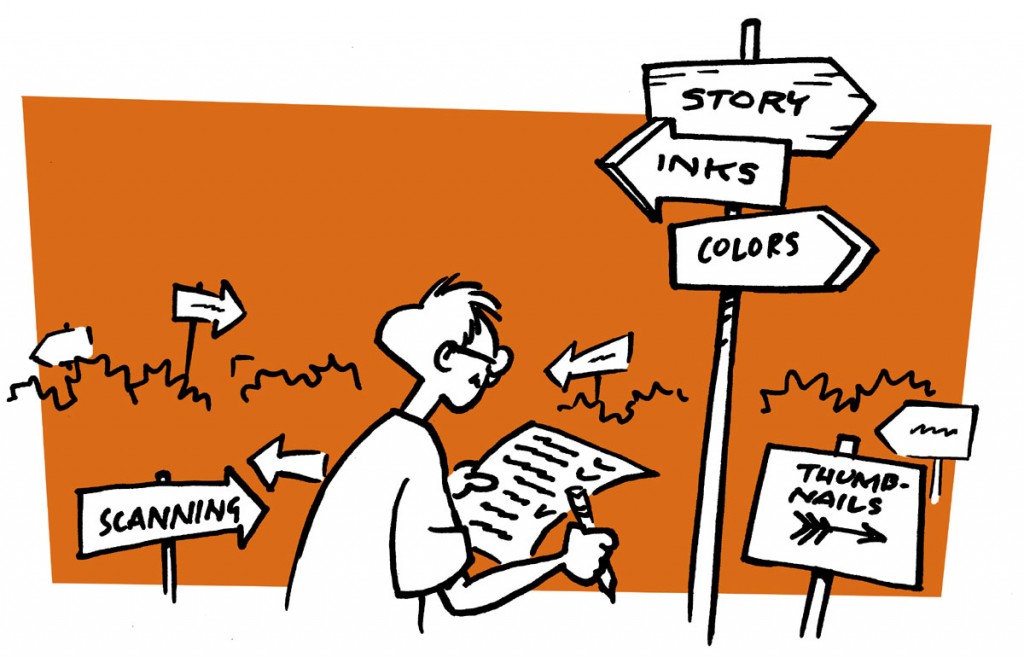 Learn how to make comics from idea to finished story through the tutorial videos. Sign up here.
Learn how to make comics from idea to finished story through the tutorial videos. Sign up here.Click the image, download or print and try out your inking skills at home!
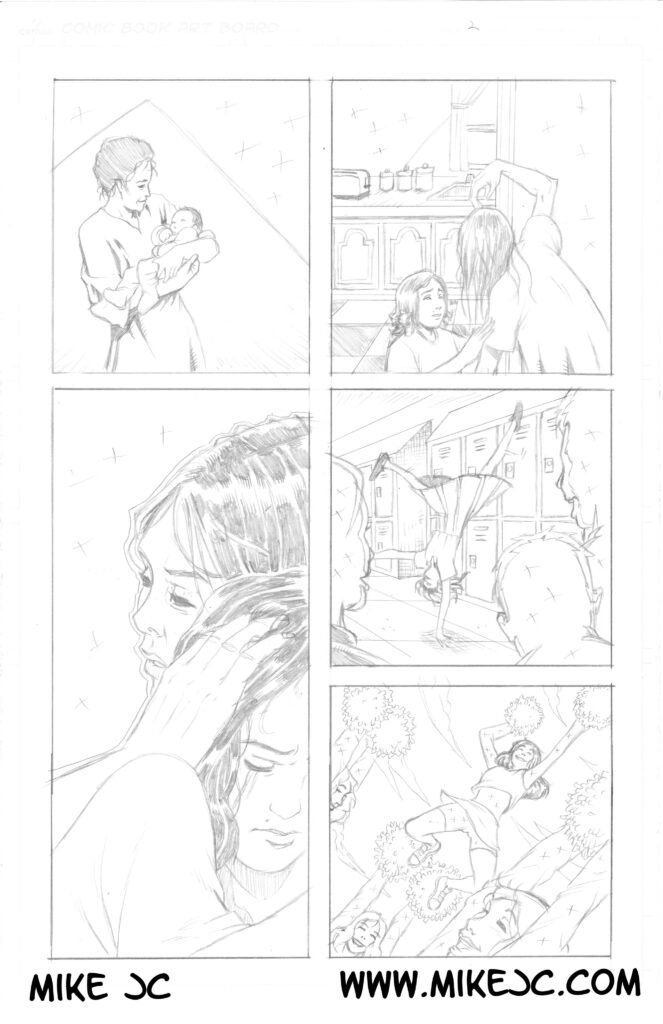
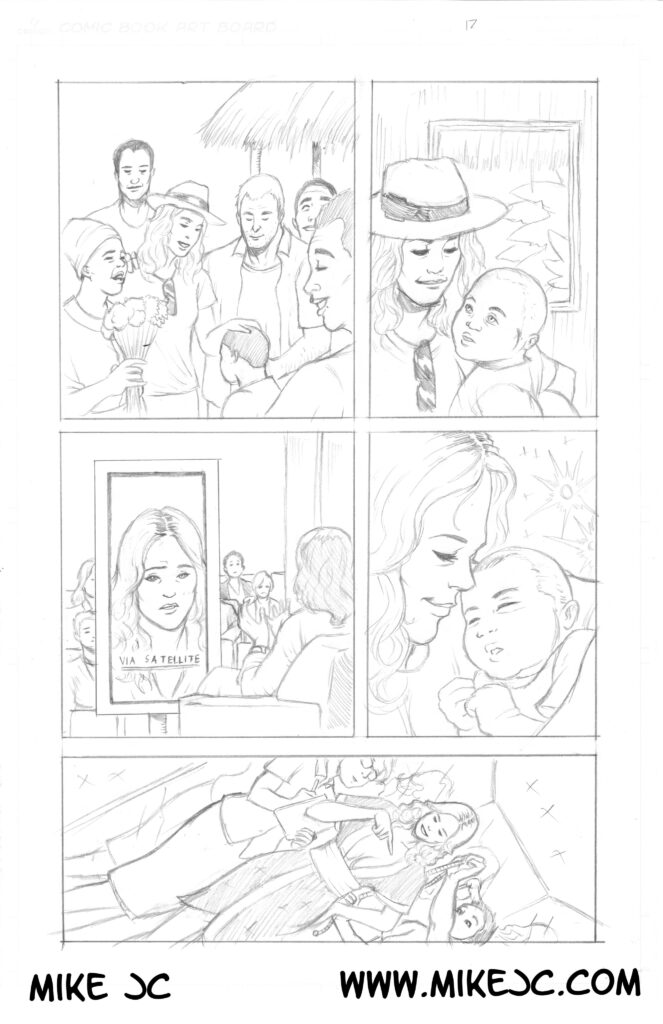
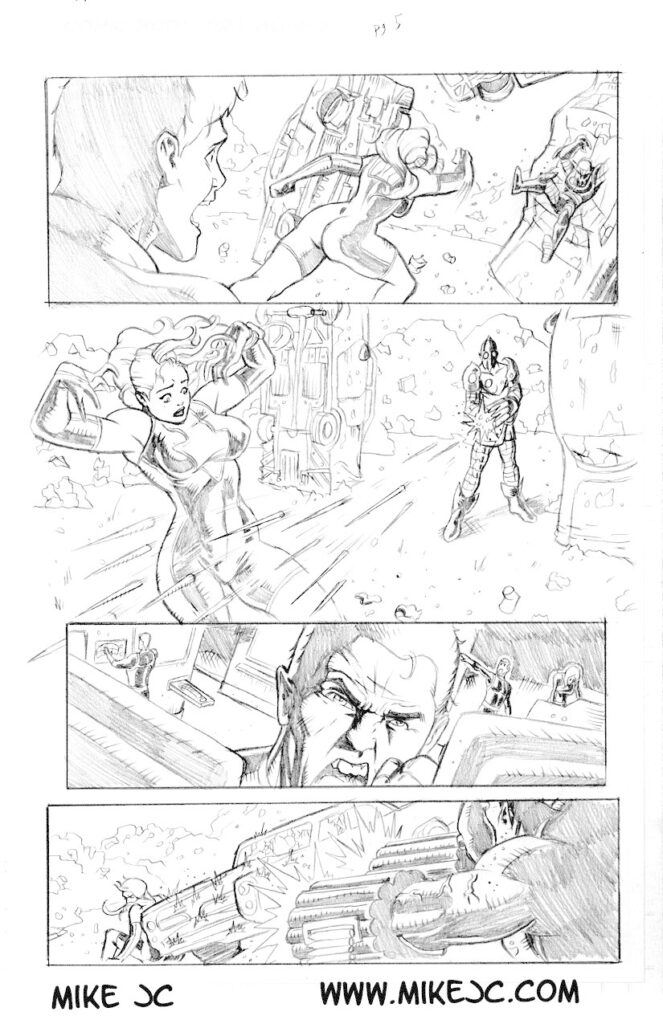
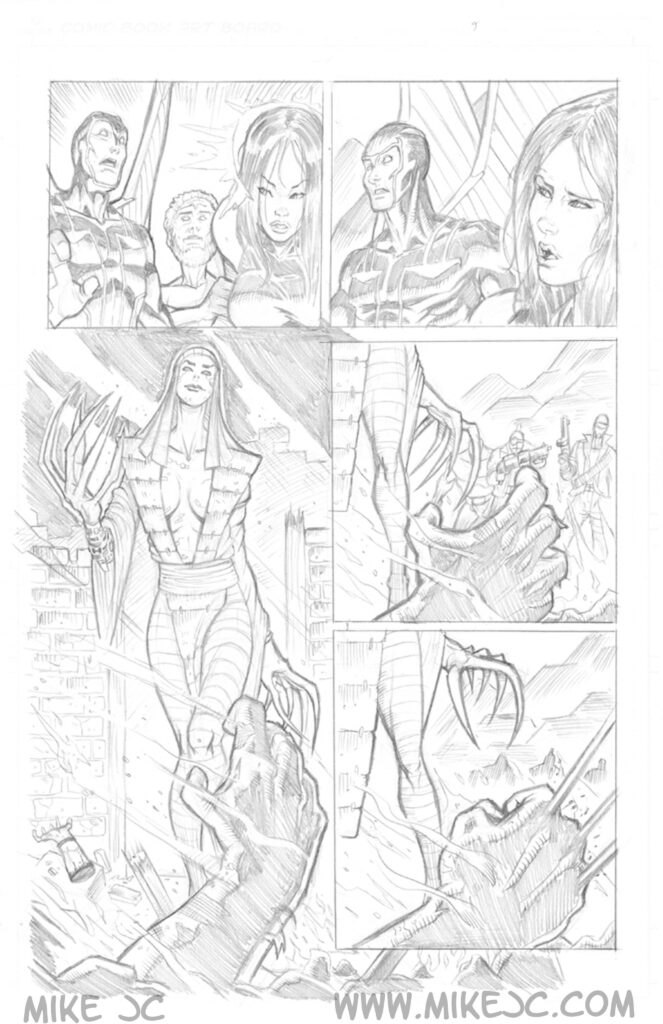
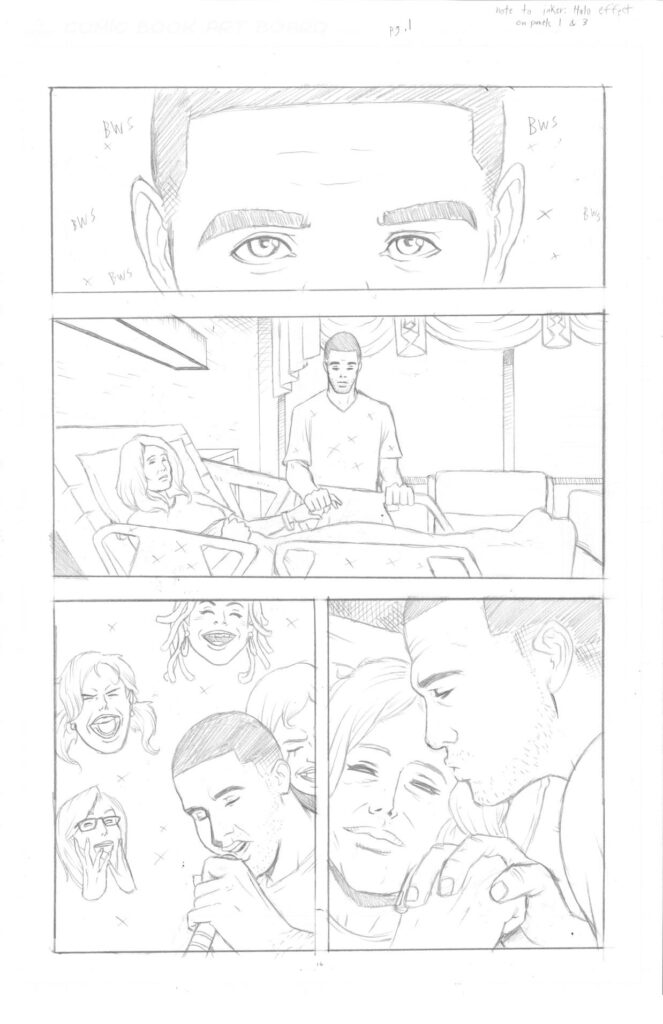
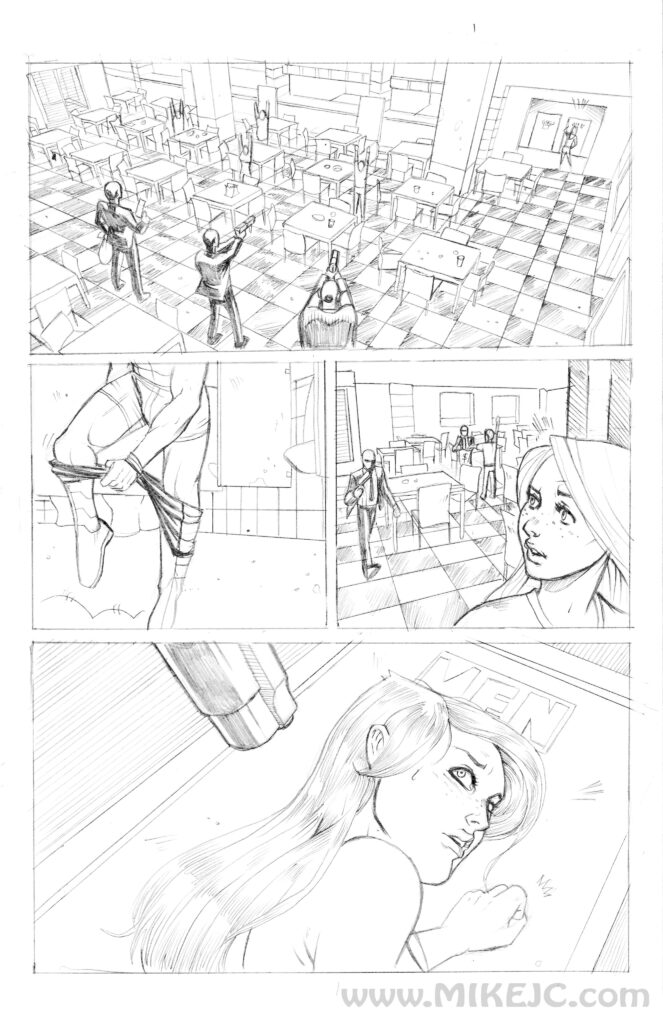
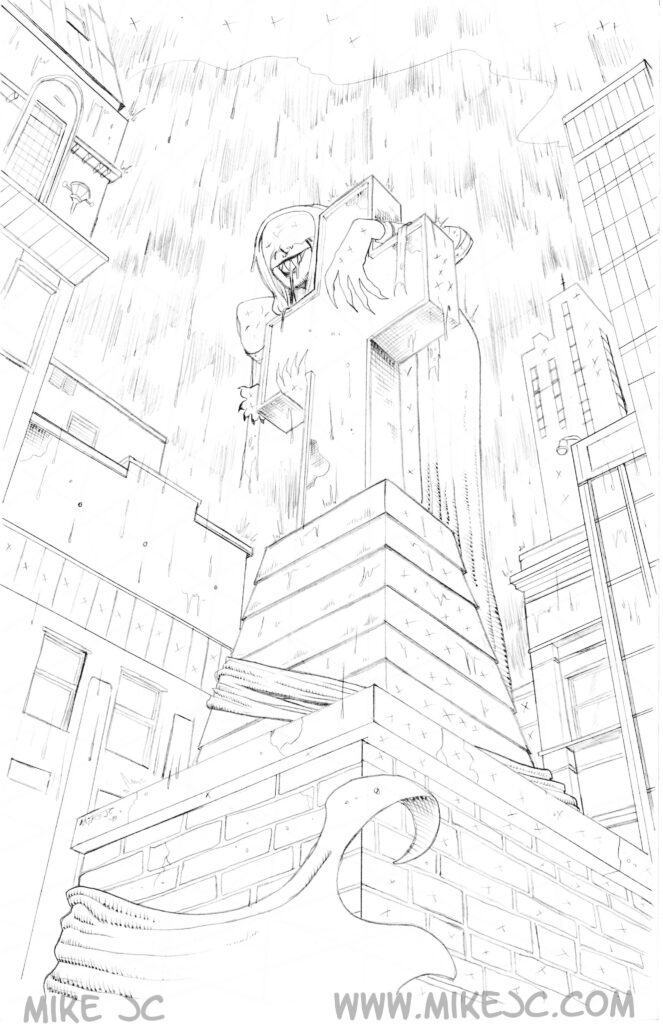
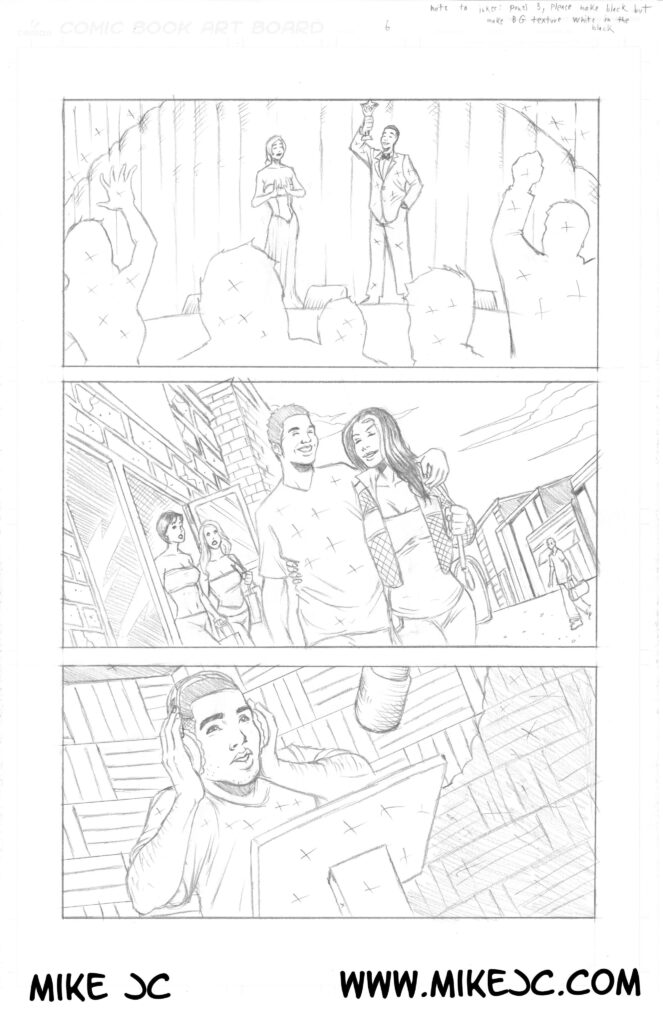
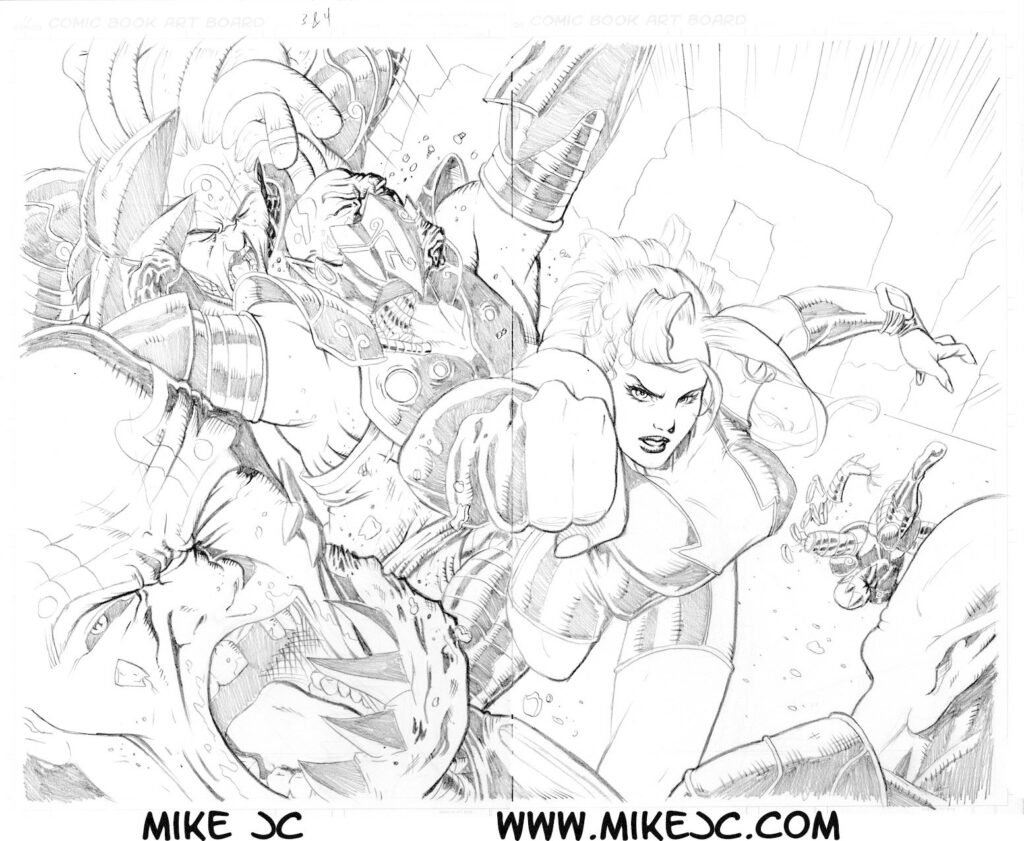
Tell me what more you need in the comments – and I’ll try to dish up even more tools for comic book artists!
Awesome. Just what I was looking for. Hope to see even more templates and goodies. Thank you for sharing.
Thanks, Martin! Tell me what you need and I’ll see what I can do. Glad these templates were helpful to you! –Palle
Can you please make a video on youtube about how to draw comics because I finished my script but I’m having a lot of troubles with drawing
Hi Ryan! You bet I will be making more videos on drawing, but the scripting part is what most books on making comics tend to skip – and it is HUGELY important! The coming vids in the series will have a lot more on how to draw, but don’t expect to see them on YouTube. The plan is to turn this in to a sort of membership site, but for now sign up is free, so if you haven’t alreade, hurry up and join the newsletter and I will keep you posted on new vids etc. Thanks again!
Hi Palle,
I was very impressed with your advice until I saw that you think Photoshop is the choice for pro comic book artwork. This is not the case, there many other alternatives, and some even better than photoshop.
These include Clip Studio Paint, Corel Painter, etc. Adobe products are no longer the only game in town. Your information is not current. Very disappointing
He said Pro,, as in Marvel, DC, etc. These companies always use Photoshop. I’m pretty sure he has nothing against the competition though his knowledge of what “Pros” use is quite accurate.
Palle,
This is exactly what I need at this moment in time! Thanks for going through the effort to create such epic and useful information. I see myself coming back to this site often to glean more nuggets of comic book wisdom in the very near future.
so I really like this website it has helped me out a lot but I was wondering if you had any tips or tricks on story boarding, i mean comics and storyboards are fairly close and one thing i am trying really hard to do is become a storyboard artist so any advice or ticks or even a place i could go with the information would be greatly appreciated
James, you’re right that comics and storyboards have a lot in common. And you are probably also right to pursue a career in the latter, as it is a lot more lucrative! Here’s the thing about storyboards: compared to comics, the level of detail is a lot lower, so it’s a lot faster to do. The trick is to provide a sketch of a character, rather than an actual person, and the same goes for almost everything. You also have the opportunity to use arrows etc. to help tell the story. The fixed format and lack of balloons is another difference. All in all I will say that if you can become a good cartoonist, you can become a good storyboard artist. If you can draw in a semi-realistic, sketchy style and you are good to work with. It’s hard to give a quick storyboarding course here, but I wish you all the best!
@James: By the way, I wrote a post on freelancing that you might find helpful: http://www.makingcomics.com/2012/03/12/ten-pieces-of-advice-for-freelancers/ Thanks!
Awesome!